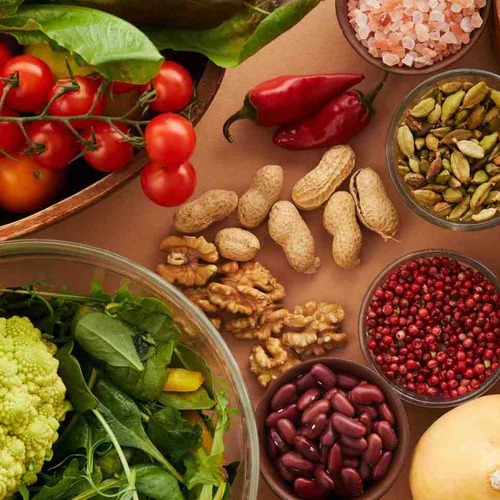Maintaining healthy kidneys isn't just about drinking plenty of water; it's also about making smart food choices and adopting a kidney-friendly lifestyle. Kidney stones, a common and often painful condition, can be avoided with the right diet, hydration, and lifestyle habits. At Aashray Urology Institute, Dr. Ashit Shah, an experienced urology expert in Vadodara, shares his insights on how to prevent kidney stones and promote long-term kidney health.
Understanding Kidney Stones and How They Form
Kidney stones are hard deposits of minerals and salts that form in the kidneys. The formation of kidney stones can be influenced by various factors, such as diet, hydration, and underlying medical conditions like high blood pressure and diabetes. The most common types of kidney stones are calcium oxalate stones, which occur when calcium combines with oxalate, a substance found in certain foods.
Lifestyle Choices Shaping Kidney Health
Certain lifestyle habits can significantly increase the risk of kidney stones. Here's how common factors contribute:
- High blood pressure and blood sugar levels can damage blood vessels in the kidneys, reducing their ability to filter waste efficiently.
- Excess sodium intake leads to dehydration and increases the concentration of calcium in urine, a major risk factor for stone formation.
- Obesity is another risk factor, as it often leads to higher calcium and uric acid levels in the urine, both of which contribute to kidney stone development.
- Managing stress, maintaining an active exercise routine, and reducing smoking or alcohol consumption are crucial to maintaining overall kidney function and minimizing the risk of kidney stones.
Smart Eating Habits for Optimal Kidney Health
What you eat plays a significant role in your kidney health. Here's how to make the best food choices to prevent kidney stones and maintain kidney function:
- Stay Hydrated: Drink plenty of water throughout the day. Aim for at least 8-10 glasses of water to help dilute the urine and prevent stone formation. In hot climates like Vadodara, extra hydration is crucial to offset the effects of heat and dehydration during the summer months.
- Citrus Fruits and Fresh Juices: Lemon juice, Orange juice, guava, and papaya are rich in vitamin C and help to prevent calcium oxalate stones by reducing oxalate levels in urine. Fresh fruit juices are a great source of hydration too.
- Low-Sodium Diet: Reduce your sodium intake by avoiding processed foods and limiting the use of salt. Too much sodium can increase the likelihood of kidney stone formation.
- Omega-3 Fatty Acids: Include foods rich in omega-3 fatty acids, like flaxseeds, chia seeds, and walnuts, which help reduce inflammation in the kidneys.
- Fresh Vegetables & Fruits: Vegetables like cabbage, carrots are rich in fiber and low in oxalates, which can help reduce the risk of kidney stones.
- Limit Animal Protein: Too much animal-based protein can increase calcium and uric acid in the urine. Consider plant-based protein sources like legumes and tofu.
- Magnesium-Rich Foods: Magnesium helps prevent kidney stones by inhibiting the crystallization of calcium. Include almonds, avocados, and bananas in your diet.
Taking Charge of Kidney Health
Living in Vadodara means dealing with high temperatures, especially in the summer months. To keep your kidneys healthy:
- Stay Hydrated: Drink extra water during the summer to keep your kidneys hydrated. Coconut water is an excellent option as it is not only hydrating but also provides essential electrolytes.
- Local Food Options: Fresh fruits like guava, papaya, and citrus fruits like oranges and lemons are widely available in Vadodara and are great for kidney health. These fruits are high in vitamin C, which can help prevent stone formation.
The Science Behind Kidney Stone Formation
Kidney stones form when the urine becomes too concentrated, allowing minerals and salts to crystallize. Factors like dehydration, high dietary oxalates, high calcium intake, and certain medical conditions can contribute to this process. Calcium oxalate stones are the most common, but uric acid stones can form due to a high-protein diet or obesity.
Spotting the Early Warning Signs of Kidney Stones
The signs of kidney stones can include:
- Severe pain in the back or sides (especially under the ribs)
- Blood in the urine
- Painful urination
- Frequent urge to urinate
If you experience any of these symptoms, it's crucial to consult a healthcare provider promptly. Dr. Ashit Shah, a top urologist in Vadodara, recommends seeking medical advice early to avoid complications.
What Should You Do If You Have a Family History of Kidney Stones?
A family history of kidney stones increases your risk. If someone in your family had kidney stones, it's wise to start preventive measures early. Dr. Ashit Shah advises individuals with a family history to stay hydrated, adopt a healthy diet, and monitor their kidney health regularly through regular consultations.
How to Know If Your Kidney Health Is at Risk?
Regular check-ups with a urology expert like Dr. Ashit Shah can help you assess your kidney function and detect potential issues before they become severe. Blood tests, urine tests, and imaging studies can reveal early signs of kidney disease or the formation of kidney stones.
Prevention and Treatment Options at Aashray Urology Institute
Kidney stones are preventable with proper diet, hydration, and lifestyle changes. However, if you happen to have kidney stones, minimally invasive urology treatments at Aashray Urology Institute can provide relief with less pain and faster recovery. Dr. Ashit Shah's expertise in Urolithiasis treatment ensures that you receive the best care possible, with advanced procedures to remove stones efficiently and with minimal disruption to your daily life.
Regular Checkups: Prevention is Key
The key to preventing kidney stones and other kidney-related issues is regular consultation with an expert like Dr. Ashit Shah. By monitoring kidney function, understanding risk factors, and making lifestyle adjustments, you can keep your kidneys in optimal condition for years to come.
At Aashray Urology Institute, Dr. Ashit Shah is dedicated to helping his patients maintain healthy kidneys through personalized care and treatment. If you have concerns about your kidney health, don't hesitate to schedule a consultation.
-
Stop Stones Before They Start
Kidney stones can be painful and disruptive, but with the lifestyle changes, they're preventable. Discover simple, effective strategies to keep your kidneys healthy and avoid the discomfort of stones.
Read More
Your Questions Answered
1. What are the common causes of kidney stones?
Kidney stones are often caused by dehydration, high salt intake, excessive oxalate-rich foods, and medical conditions like high blood pressure, diabetes, or obesity. A family history of kidney stones can also increase your risk. Lifestyle factors such as stress, lack of physical activity, and smoking may also contribute to stone formation.
2. How can I prevent kidney stones?
Preventing kidney stones involves maintaining proper hydration by drinking plenty of water, eating a balanced diet with low salt, and avoiding excessive consumption of oxalate-rich foods like spinach, beets, and chocolate. Regular exercise, managing stress, and maintaining a healthy weight are also essential. Regular checkups with a urologist can help monitor kidney health.
3. How do I know if I have kidney stones?
Common symptoms of kidney stones include severe pain in the lower back or side (under the ribs), blood in the urine, painful urination, frequent urge to urinate, nausea & vomiting. If you experience these symptoms, it's important to consult with a healthcare provider promptly for diagnosis and treatment.
4. What foods should I eat to prevent kidney stones?
To prevent kidney stones, focus on staying hydrated and eating a diet rich in fruits like guava, papaya, oranges, and citrus fruits. Incorporate vegetables rich in fibre and include magnesium-rich foods such as almonds, avocados, and bananas. Limit sodium intake and avoid excessive animal protein.
5. Can kidney stones be treated without surgery?
Yes, approximately 80% of kidney stones can often be treated with minimally invasive procedures where a scope is inserted to remove the stone. Dr. Ashit Shah offers these advanced treatment options at Aashray Urology Institute.
6. How does family history affect kidney stone risk?
A family history of kidney stones significantly increases your risk. If your parents or siblings have had kidney stones, you are more likely to develop them. Regular monitoring, staying hydrated, and making lifestyle changes can help reduce the risk of kidney stones.
7. How can I tell if my kidney health is at risk?
To assess kidney health, regular checkups are crucial. Blood tests to check kidney function (such as creatinine levels) and urine tests to detect abnormal substances can indicate kidney issues. If you have risk factors like high blood pressure, diabetes, or a family history of kidney stones, it's important to have your kidney health evaluated regularly.
8. Can drinking alcohol affect kidney health?
Excessive alcohol consumption can lead to dehydration, which increases the risk of kidney stones and other kidney problems. It can also interfere with kidney function by raising blood pressure and increasing uric acid levels, both of which are linked to kidney stone formation.
9. Are there any foods I should avoid if I have kidney stones?
If you have kidney stones, it's important to avoid foods high in oxalates, such as spinach, nuts, chocolate, and tea. Also, salt intake should be limited, as too much sodium can increase calcium levels in the urine and contribute to stone formation. Reducing animal protein intake may also help, especially for uric acid stones.
10. When should I consult a doctor about kidney stones?
You should consult a doctor if you experience symptoms like severe pain in your back or sides, blood in the urine, or painful urination. If you have a family history of kidney stones or any other risk factors like high blood pressure or diabetes, it's important to schedule regular checkups with a urologist like Dr. Ashit Shah to monitor your kidney health and prevent complications.
11. How can stress affect kidney health?
Stress can contribute to kidney problems by raising blood pressure and causing other harmful physiological responses. Chronic stress may increase the risk of kidney disease and kidney stones. Managing stress through exercise, relaxation techniques, and a balanced lifestyle can help protect your kidneys.
12. How does the climate in Vadodara affect kidney health?
The hot summers in Vadodara can increase the risk of dehydration, which is a major contributor to kidney stone formation. It's essential to stay hydrated by drinking plenty of water and other hydrating fluids like coconut water, especially in the hotter months. This helps keep the urine diluted and prevents stone formation.
In Conclusion: Protecting Your Kidney Health
Prevention is always better than treatment. By staying hydrated, eating kidney-friendly foods, and making lifestyle adjustments, you can significantly reduce the risk of kidney stones and other kidney diseases. Whether you're a resident of Vadodara or anywhere else, taking small steps today can lead to healthier kidneys tomorrow.
For more personalized advice, feel free to contact Dr. Ashit Shah, the best urologist in Vadodara, for a consultation at Aashray Urology Institute. Healthy kidneys are just a few lifestyle changes away!



